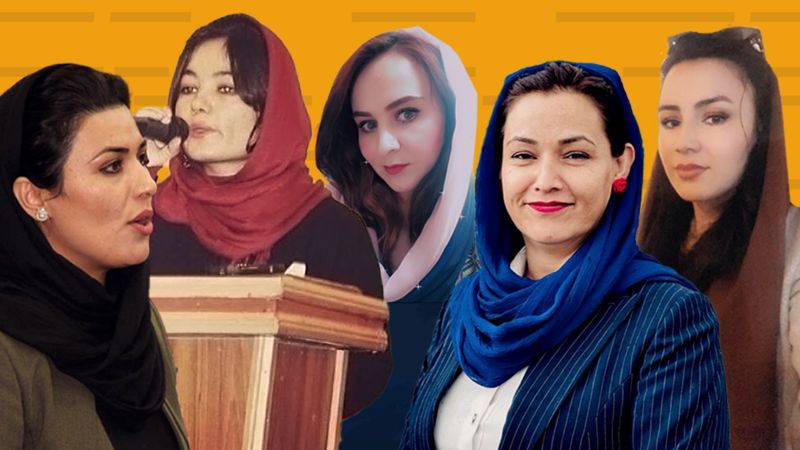
It’s been a month since the Taliban took control of Afghanistan. Thousands of Afghan citizens were forced to move away from their soil in this one month, so the survivors are forced to live up to the promises of the new Taliban government.
These include those women, who are also learning to live with those new laws and restrictions. These include covering oneself with a hijab before crossing the threshold of the house and going out only with a husband or a mahram (a relationship between a man and a woman in which marriage is not permissible such as mother-son, brother-sister, father-daughter, etc.) Is.
In such a situation, questions are being raised about their freedom and future.
But there is also a group among these women who do not care about the bullets of the Taliban, they do not fear the whips, they do not care about their families. These women are not even ready to bear all the restrictions silently.
farah mustafavi
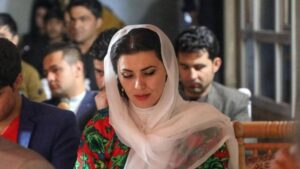
Farah Mustafavi is 29 years old and the mother of two children.
Farah Mustafavi, who raised her voice against the Taliban, has been working for human rights since the age of 17.
She says, “We talk to them and argue that Khadija, the wife of Prophet Muhammad, was herself a very big business woman and no one asked her to do this and she herself chose this profession. Similarly, it is a matter of our human rights and we are not against you.
Are these women protesters not afraid amidst reports of firing on protesters opposing the Taliban?
- Not afraid of Taliban?
Laughing out loud at this, Farah says, “Me and my friend Zolia are not going anywhere from here. Our family members are very afraid that if you face them like this, they will kill you, but I am not afraid.
She further says, “This is my country and here is my home, I also got a chance to go out of the country, but I will not go anywhere from here.”
Farah looks very angry with the withdrawal of American troops and says – We came out of a dark century, where there was civil society, women were able to work, there were gyms, salons, parlors, cafes. We could have gone anywhere in the middle of the night, but now only a few cafes are open.
She continues, “We appeal not to recognize the Taliban’s government. We are not protesting for the return of Ashraf Ghani and Hamid Karzai’s government because we have faced corruption, nepotism, ethnicity and even in those times.” Giving advantage of power to selected people.”

According to him, if the Taliban give equal rights to everyone in power and protect the rights of all, remove corruption, then we accept the Taliban government.
But as the Taliban is now, countries and institutions like India, France, England and Germany should stand with the people and women of Afghanistan and understand that this is not only our problem, but the extremist ideology of the Taliban is another secular and It can present a challenge to democratic countries.
The Taliban previously ruled Afghanistan from 1996 to 2001. Due to his thinking towards women, he did not have the freedom to read, write and work. And women are now afraid of returning to the same era again.
- Darkhshan marriage

Darkhshan Shadan is also a human rights activist. According to her, ever since the Taliban took control of the areas of Afghanistan, the status of women has changed completely.
Girls study in hijab, male teachers can teach behind the scenes: Taliban
The Taliban recently announced their new interim government, but their cabinet currently does not include a single woman. Darkhshan raises the question, “What kind of government is this? Earlier there used to be a ministry of women’s affairs, but now there is not. The situation is not clear regarding the future of women.
She says, “We saw in the news that the Taliban say that women should stay at home and that only women can work that is associated with education or health services. But what about those women who do not have any male member in the house and they have to take care of the house, if they do not work, then how will the expenses of their house run.
“Many women have lost their husbands, fathers or brothers in the attacks and they used to work in other places and institutions, but what will happen to such single women after this Taliban decree? But they will not remain silent and fight for women’s rights. Will keep fighting for it.”
This time the Taliban have said that women will be given rights under Sharia or Islamic law. But the situation is not clear about what these rights will be.
- Shakeba Tamkeen
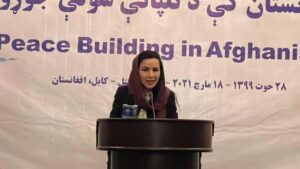
Shakeba Tamkeen, who works in the Administration Department of the National Force, tells the BBC that eighty percent of her life has changed after the capture of the Taliban.
She is 25 years old and came to Kabul to work from Badakshan province. He has a mother and younger siblings in his house.
She used to save some money and send it to her house but now she herself is living in financial crisis.
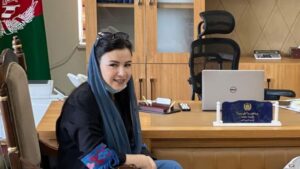
According to him, “I have not yet received the salary from the previous government. I am not able to pay even the rent of the house. There is no money to buy food or clothes. After staying in Kabul for a month, seeing the situation, I will decide to return to my province.
- Julia Parsi
Coming from Takhar province of the country, Julia works as a part-time teacher in Parsi schools and private universities.
She teaches fifth grade children in a private school in the morning and Persian literature to first semester students in the afternoon.
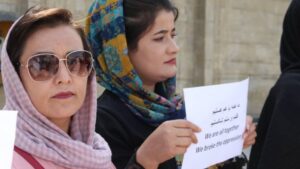
According to Zulia, children are not coming because of fear of the Taliban and the Taliban have said that children from class 7th to 12th should not come to school and girls have been asked to wear hijab.
According to him, the Taliban have also beaten up girls for not wearing hijabs, so many parents are scared and are afraid to send their girls to school.
Even in college, he has asked girls to wear hijab and boys and girls to study separately.
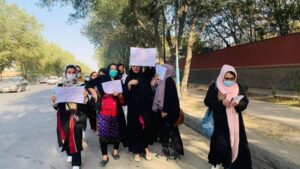
Julia has three daughters and two sons. Husband has been unemployed for years.
She tells that her elder daughter studies in 12th and younger in 10th. Now she doesn’t go to school. His younger daughter is in fourth grade.
She says, “How can such a young girl wear a hijab, I have got her school closed. My children are scared and in shock from the Taliban. They have been at home for a month.”
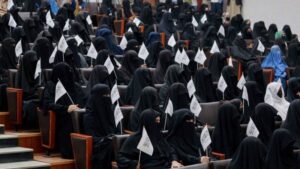
About her college, she says that there are separate paths for boys and girls. Curtain wall has been installed in the room. Girls are allowed to enter the class only after boys, that too when all the boys have taken their seats in the class.
A recent United Nations Educational, Scientific and Cultural Organization or UNESCO report said that in the last 17 years after the end of Taliban control, the number of girls in primary schools had increased from zero to about 2.5 million.
But now this figure seems to be going down again.
The Taliban says that universities in the country will be segregated according to gender and a new dress code will be implemented.
Higher Education Minister Abdul Baqi Haqqani has indicated that women will be allowed to study but they will not be able to do it with men.
- hamas badakhshan
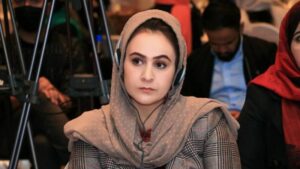
Hamsa Badakhshan is 27 years old and used to work in the Planning and Policy Department in the previous government.
She says, “I was the first woman to go to my office after the arrival of the Taliban. But when I reached there, I was asked to leave and told that now we have our staff here and we will make our plans and policies for the future.
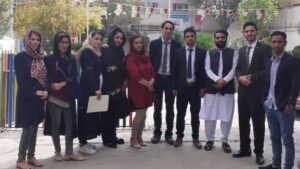
She further says that there were mullahs and clerics in her department too, but gender was taken care of. What strategy the Taliban will make is not known, but some of the plans made by their department have now come to naught.
“I can honestly say that I have no hope from the new Taliban government and our future is full of darkness,” she says.
Hamsa tells that her father used to work in the education department and it was the Taliban who killed her. He has a mother and five younger siblings at home.







